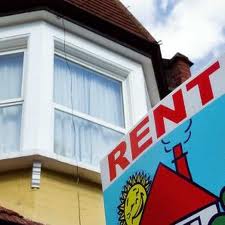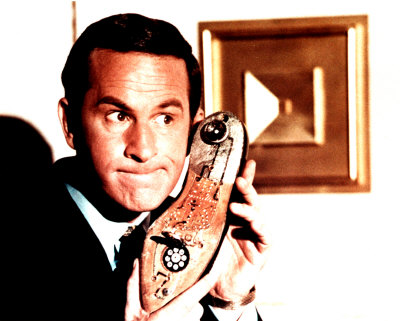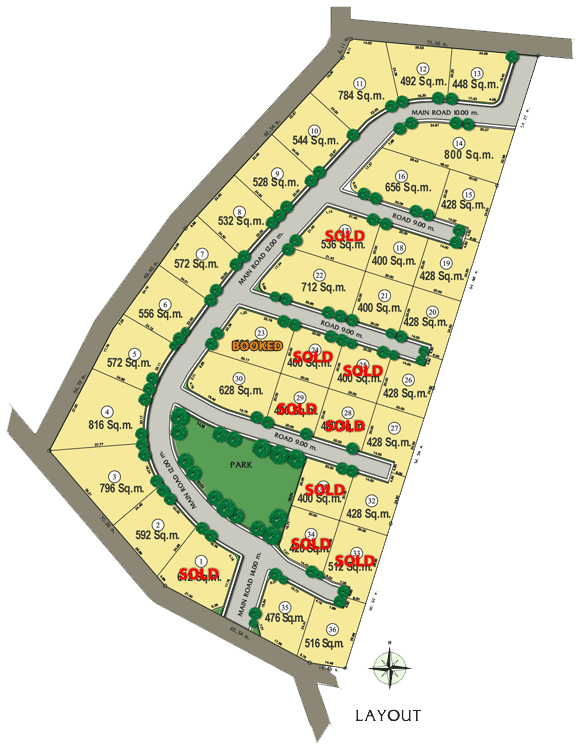Property Management Service
Serving Broomfield, Westminster, Arvada, Lakewood, Denver, Aurora, Boulder County and the Surrounding Areas
Property Management Services provided through Metro RE Investment Group & Property Management is your source for honest and dependable management, providing the highest quality of service to our landlords, investors, and their tenants, giving them the personal attention they deserve.
We’re proud members of the National Association of Residential Property Managers, an association of real estate professionals who, on a daily basis, deal with challenges of managing residential rental properties. NARPM® provides its members with continuing education and higher standards of professionalism to better serve their clients.
 |
 |
 |
 |
| Tenants | Owners | Agents | HOA Management |
Security Measures
Metro REIG Complies with the guidelines and the numerous security restrictions placed by law on the users of credit report products:
- Business is conducted at a secure, commercially based location
- Access to the business computer system is only granted to authorized agents
- Site inspected by approved 3rd party inspector as required by law and credit agencies
- Property Management Agreement detailing responsibilities and obligations of all parties
For a Comprehensive List of Services
What’s In the News
2019 Property Management Legislations
During the 2019 Colorado legislative session Our legislators were busy passing a slew of laws effecting the property managers, landlords and tenants. Below is the excerpt from the Colorado Real Estate Commission highlining each act and links to them:
HB 2019a_1118 (Time Period to Cure Lease Violation, effective 5/20/19)
This Bill concerns the time allowed for a tenant to cure a lease violation that is not a substantial violation. Some of the Bill’s highlights include:
- A landlord must provide 10 days written notice before starting an action for eviction of a residential tenant after any default in the payment of rent by the tenant.
- This 10 day notice also applies to a tenant’s initial violation of a non-monetary lease provision.
- It does not apply to commercial leases, employer-provided housing, or exempt residential agreements.
- There is an exception for landlords who own 5 or fewer single-family homes, with certain conditions. Read More…
HB 2019a_1106 HB19-1106 (Rental Application Fairness Act effective 8/2/19)
This Bill concerns the rental application process for prospective tenants. Some of the Bill’s highlights include:
A landlord shall not charge a prospective tenant a rental application fee unless it uses the entire amount of the fee to cover the costs in processing the rental application. Those costs may be based on:
- the actual expense incurred in processing the rental application; or
- the average expense incurred per prospective tenant in the course of processing multiple rental applications.
A landlord shall not charge a prospective tenant a rental application fee that is a different amount than a fee charged to another prospective tenant who applies to rent:
- the same dwelling unit; or
- if the landlord offers more than 1 dwelling unit for rent at the same time, any other dwelling unit offered by the landlord.
A landlord shall provide to any prospective tenant who has paid a rental application fee either a disclosure of the anticipated expenses for which the fee will be used or an itemization of the actual expenses incurred; and shall provide a receipt for any fee received.
- A landlord who receives a rental application fee and does not use the entire amount of the fee to cover the costs in processing the rental application shall return the remaining amount of the fee.
- If a landlord uses rental history or credit history as criteria in consideration of an application, it shall not consider that history beyond 7 years immediately preceding the date of the application.
- If a landlord uses criminal history as a criterion in consideration of an application, it shall not consider that arrest record from any time or any conviction that occurred more than 5 years before the date of the application; except for some specified convictions or deferred judgments.
- If a landlord denies a rental application, it shall provide a written notice of the denial that states the reasons for the denial.
- A landlord that violates provisions of the Act can be held liable for treble the amount of the rental application fee, plus court costs and reasonable attorney’s fees. Read More…
HB 2019a_1170 (Residential Tenants Health and Safety Act, effective 8/2/19)
- Expands a tenant’s ability to seek relief if conditions are present that affect the habitability of their premises.
- An uninhabitable condition now includes mold or other conditions that cause the premises to be damp.
- Methods of notifying the landlord of problems and time limits for a landlord to correct defective conditions.
- Situations when a landlord may be required to move the tenant to another unit, or pay for moving costs or a temporary location to reside.
- Rights of a tenant to deduct rent payments for repair of defective conditions, or to terminate a lease agreement for recurring defective conditions. Read More…
HB 2019a_1328 (Landlord and Tenant Duties Regarding Bed Bugs, effective 1/1/20)
This Bill concerns bed bugs in residential premises, and, in connection therewith, establishing duties for landlords and tenants in addressing the presence of bed bugs.
- A tenant must promptly notify their landlord when they know or reasonably suspect that their dwelling unit contains bed bugs.
- The landlord has up to 96 hours after receiving notice of the bed bug problem to inspect the property or have it inspected by a qualified inspector.
- The landlord shall provide reasonable written or electronic notice before entering the tenant’s dwelling prior to any inspection or treatment of bed bugs.
- If the presence of bed bugs are confirmed, an inspection of all contiguous dwelling units shall also be inspected.
- The landlord is responsible for all costs associated with an inspection for, and treatment of, bed bugs, except as otherwise provided in the statute.
- The tenant shall comply with reasonable measures to permit the inspection and treatment of bed bugs and is responsible for the costs associated with preparing the unit for inspection and treatment.
- A tenant that knowingly and unreasonably fails to comply with the inspection and treatment requirements of the Bill is liable for the cost of any bed bug treatments of the dwelling and any contiguous units if the need for treatments arises from their noncompliance.
- The Bill also contains additional rights and remedies for both the landlord and tenant. Read More …
Frequently Asked Questions
Property Management Service
These are the frequent asked questions I have compiled in the past few years. They provide additional information. All questions may not apply to your situation:
1. Your Fees
There are two fees involved, leasing fee and management fee. That is it. No renewal fees, trip charges, vendor mark up, etc. Please call for a copy of my management agreement. The fees and the amounts are all spelled out.
If there are tenants in place, there won’t be a leasing fee.
2. Do you only manage properties?
No. I am a broker as well. My services include Sales, Investment Analysis, Lease-only and Property Management.
3. Does your management agreement obligate us to use you when we decide to sell?
No. I do not have such provision in my management agreement. You would be hiring me and paying me to lease and manage your home. Selling and property management are separate services. However, I would hope your are happy with my services and would use me to sell your home.
4. How you handle emergency maintenance (from the owner’s perspective)
The owners will have my cell phone number. I do not keep a weekday-only 9-5 schedule. I have an after-hours number for the tenants.
5. The amount of expenditure that requires our approval (for maintenance, repairs, etc.)
I leave that to the homeowner. I am sure you know some repairs are cheaper to do while the technician is there than being dispatched twice. I always drop a note to my landlords when there is something that needs to be fixed, regardless of how big. You will always know what to expect.
6. Is maintenance (routine and emergency) paid out of the next month’s rent?
I can do that or set up a reserve. If it is a true emergency (flood, fire), however, it will be taken care of immediately before more extensive damage is done.
7. Does someone from the property management company actually inspect the finished work to make sure it’s done and done well?
It depends on the work. If it is a simple repair like appliance repair, I’ll check with the tenants. If it is more major like fence repair or roof repair I personally check the work. I often go there to check out the issue before dispatching someone.
8. When is rent disbursed?
The rents are deposited the same or the following day after collection. I disburse the rent 24-48 hours after the deposit, assuming the rent check clears. I can mail a check or ACH direct deposit into your checking/savings account at no extra charge to you. The rent is late after the 5th day, no exceptions. I make it easy for tenants to pay: drop off at the front desk, night drop off box, online, and off course postal mail.
9. How do you handle the accounting for the security deposit when a tenant leaves?
All security deposits are kept in an escrow/trust account as required by law. The tenant will get a list of the expenses paid out of the deposit and how much is refunded.
10. Do you keep the security deposit for the duration of the lease?
I will keep the deposit during the lease. If my agreement with the landlord is terminated for any reason, the deposit will be sent via certified mail to the next party managing the property or the landlord. The tenant will also get a letter informing them who is holding the deposit.
11. How difficult is it to transfer property management companies with a tenant in place?
It is not a difficult task. The steps involved are:
a) I have to learn about the property and the tenants (the good, the bad, and ugly). You and I will talk.
b) You let your manager know that you are switching (I have a sample letter). You probably have to give a 30-day notice. Please check your agreement.
c) Your manager will inform the tenant and will transfer the security deposit, and keys to me.
d) I’ll contact the tenant to introduce myself and will make visit to document the condition of the property as I take over.
e) We’ll keep the same lease until expiration. I will redo the lease then.
12. Any other information that you know we need?
Personal service is another way I differentiated myself. I look after my owners’ interests: from tenant placement, rent disbursements, to local affairs that could impact them. If a minor maintenance can be taken care of and If I have the time, I will do it. That saves may landlords a few dollars and I have an excuse to be inside the property. I am inside all my properties twice a year. It is good for everyone. I drive by them at least once a month.
I have gone through the rigorous requirements of the credit reporting agencies to be credentialed. I can directly access Trans-Union’s database for credit/background checks.
Topics in Property Management
How Much Mold is Too Much?
We often face situations in homes where there is some mold or mildew that needs to be cleaned. The question is if we have to hire a professional to remediate. In most cases if the affected area is less than 10 square feet, you can handle the job yourself. This is per EPA’s documentation. Please see EPA’s website Mold Cleanup in Your Home. The site contains tips, techniques, guidelines and many useful information.
Lowering Expenses to Improve Cash-flow
Property Taxes
The State statute requires that each real property be re-valued by the County Assessor every two years. In odd-numbered years, the property taxes are set for the following two years.
Is Security Deposit a Taxable Income?
The question I’ve been frequently asked by owners is whether a security deposit a taxable income. The security deposit or damage deposit you receive from a tenant should not be included in your rental income if you intend to return the funds to your tenant when they leave after the lease expires. However, if the tenant Read More …
